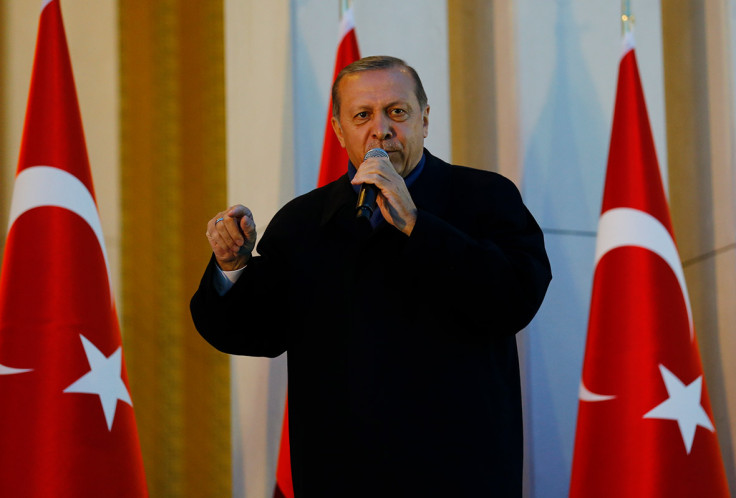Not all referendums are for the people – some only serve power-hungry politicians
In a post-truth world, not every referendum is democratic.

When I was teaching an introductory politics course to undergraduates in the late 2000s, I remember emphasising how referendums are rare in modern democracies. Over the past few years however, the frequency of referendums has drastically increased across Europe.
The Scottish Independence referendum, the UK's vote to leave the European Union, the Hungarian migrant quota referendum, and Turkey's constitutional referendum are some of the most recent. While the latter two are more in line with our conventional understanding of referendums, but the latter two signal the emergence of a new trend which is worthy of our attention.
These new types of referendums share something in common. They are called by populist leaders in the post-truth age and are usually aimed at consolidating either their positions on certain policy areas, or strengthening their powers through constitutional changes.
In other words, the referendum has become a weapon of choice for populist leaders to manufacture consent by deliberately spreading misinformation, in order to legitimise their illiberal policies and rulings through democratic mean.
Therefore, the campaign processes these leaders adopt during these referendums share distinct characteristics: deliberate misinformation, exaggerated emphasis on national sovereignty/security and almost total control of mainstream media.
Since the refugee crisis broke out in Europe in 2015, Hungarian Prime Minister Viktor Orban has not shied away from making anti-refugee sentiments – for which he has been criticised by the EU institutions. Regardless, Orban rejected the EU's mandatory migrant quota and then called for a referendum in October 2016. This was to win the popular vote for his policy choice and to prove to the EU that he has the backing of the Hungarian people.

Orban also conducted the referendum through anti-EU and anti-migrant rhetoric. His "yes camp" claimed that accepting refugees would not only mean losing Hungarian identity and culture, but would also risk the EU's unity. They also emphasised Hungary's ability to make decisions without interference from the EU.
This is problematic on two levels. The first is that the East and Central European countries like Hungary are suffering from serious "brain drain" – migration would benefit Hungarian economy and society. The second problem is that Hungary is a member of the EU, which means it has signed to comply with the common EU policies, such as those concerning refugees, otherwise it is the Hungarian government that is putting the EU's unity at risk, rather than the refugees.
Since 2013, meanwhile, Turkish President Recep Erdogan has been promoting an executive presidential system in the country. He first got himself directly elected in 2014 after a constitutional change and then he assured the Parliament's approval.
Only a couple of days a go, he sought approval to amend the constitution and transform Turkey's parliamentary system into a one-man rule – which he contentiously won by a narrow margin, enabling him to hold the presidential seat until 2029.
The rhetoric used by Erdogan's ''yes camp'' was divisive and nationalistic, entirely shaped by national unity/security concepts. They claimed the constitutional changes would allow the Turkish state to be more effective in handling the external and internal threats that allegedly challenge the country's national security and unity.
Having studied the National Security Council (NSC) extensively in my PhD, I do not see any evidence to support such a pledge – but it must have sounded great to the ears of his devotees, who generally suffer from siege mentality.
Perhaps most striking was the ''yes'' campaigners' ability draw connections between the proposed regime change to economic prosperity and infrastructure projects, claiming that the Turkish state would be able to build more bridges and roads.
It is not a secret that the control of most of the public and private media channels in Hungary and Turkey have been gradually taken over by Orban and Erdogan's administrations. And therefore it is not surprising that during the referendums, those who were in opposition to Orban's position on refugees and Erdogan's constitutional changes did not receive fair attention in the media and press. Consequently they stood no chance in reaching out to the voters.
With the rise of illiberal democracies, the very concept of democracy and democratic governance is changing. While liberal democracy has always championed consensual democratic governance, in a post-truth age, populist leaders and parties are able to manufacture the consent of a simple majority to impose their wishes on the rest of the populace. As a result, referendums are becoming the tool by which citizens are duped into making decisions that favour power-hungry politicians.
© Copyright IBTimes 2025. All rights reserved.






















